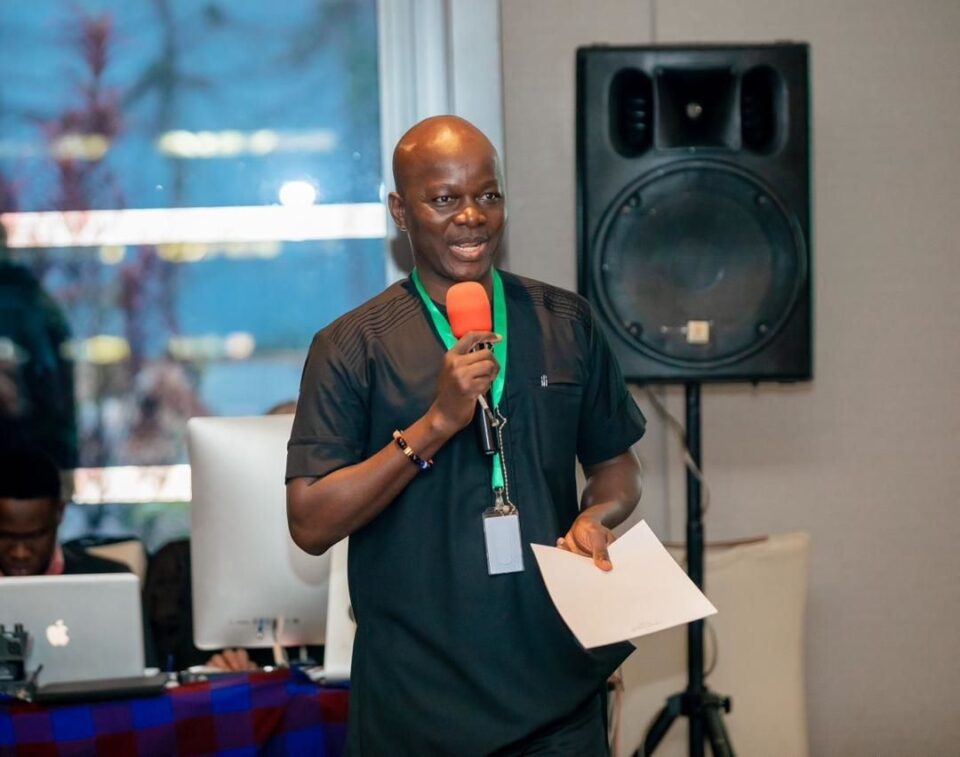Afrobarometer CEO Reveals
PHOTO: Afrobarometer CEO, Joseph Asunka, speaking at the Africa Drive for Democracy Conference 2023
Satisfaction with the way democracy is working has declined across Africa, undermining citizens’ confidence in democratic governance, Afrobarometer CEO Joseph Asunka told participants Monday at the Africa Drive for Democracy Conference – Elders Retreat in Arusha, Tanzania.
The conference gathered former heads of states and key elders, creating a platform to discuss the state of democracy in Africa and harness their collective wisdom and imagination in building pathways for renewed and sustained democracy on the continent.
Asunka cited non-compliance with presidential term limits, rising crime and insecurity, and corruption as factors that may be contributing to popular dissatisfaction with democratic rule.
“The data shows that Africans’ commitment to democracy remains strong,” he said. “However, governments and elected leaders have failed to meet these popular democratic aspirations. This has led to a decline in popular confidence in democratic governance and an increasing attraction to military rule and intervention.”
Recent Afrobarometer data from 36 countries surveyed in 2021/2022 show that two-thirds (66%) of Africans prefer democracy over any other form of government. Additionally, large majorities reject one-man rule (80%), one-party rule (78%), and military rule (67%). But only 38% express satisfaction with the way democracy functions in their countries.
Conference attendees included Joachim Chissano, Ernest Bai Koroma, Hailemariam
Desalegn, and Jakaya Mrisho Kikwete, former heads of state of Mozambique, Sierra Leone, Ethiopia, and Tanzania, respectively, with Tanzanian President Samia Suluhu Hassan as guest of honour. These leaders stressed the need for practical and actionable solutions to strengthen democracy.
“Unless and until African governments address the deficiencies in democratic governance and deliver essential public services to their people, democracy will remain an aspiration never to be meaningfully realised,” Hassan said.
Addressing the conference theme, “Securing Africa’s democratic future through learning and engaging,” Koroma said confronting these challenges demands collective action to preserve and strengthen democratic norms and institutions.
“We’re all in this together because we believe in the transformative power of democracy,” he said. “No doubt democracy is not without obstacles, but together we must confront the challenges that threaten its foundations: poor leadership, ineffective citizenship, corruption, poverty, political polarisation, rogue elections, and all the attendant ramifications of social unrest and political instability.”
Throughout the discussions, participants acknowledged the vital role of African elders in shaping the continent’s democratic future.
Across a continent that has experienced 21 coups in eight years, Afrobarometer data show that the extent of citizens’ opposition to military rule has declined by 10 percentage points over the past decade. Only three of the 36 surveyed countries (Liberia, Uganda, and Sudan) have recorded significant increases in their resistance to military rule. Worryingly, a slim majority (53%) of citizens are willing to endorse military intervention if elected leaders abuse their power.
The Africa Drive for Democracy Conference – Elders Retreat served as a platform for constructive dialogue, seeking concrete approaches to advance democracy and ensure sustained democratic gains for Africa.
About Afrobarometer
Afrobarometer (AB) is a trusted source of high-quality data and analysis on what Africans are thinking. With an unmatched track record of 350,000+ interviews in 42 countries, representing the views of about 75% of the African population, AB is leading the charge to bridge the continent’s data gap. AB data inform many global indices, such as the Ibrahim Index of African Governance, Transparency International’s Global Corruption Barometer, and the World Bank’s Worldwide Governance Indicators. The data are also used for country risk analyses and by credit rating and forecasting agencies such as the Economist Intelligence Unit. All AB data sets are publicly available on the website and may be analysed free of charge using AB’s online data analysis tool.

